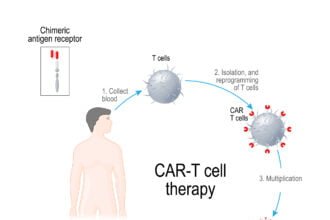Therapy is a process of self-discovery, with the aim of helping clients to understand—and work through—the issues that have been preventing them from living their life to their fullest. During this process, one of the most essential yet challenging elements is transference: when an individual transfers previous relationships and dynamics onto their therapist. As counterintuitive as it may sound, transference has been proven to be one of the biggest driving forces in making therapeutic progress possible. In this blog post, we’ll explore why transference plays such an important role in therapy and look at some strategies for using it effectively.
- 1. Transference is a powerful tool that can be used to facilitate therapeutic progress
- 2. Transference occurs when patients project their feelings onto their therapists
- 3. Transference can be positive or negative, depending on the patient’s feelings
- 4. Positive transference can lead to patients feeling more trusting and open with their therapists, which can facilitate therapeutic progress
- 5. Negative transference can lead to patients feeling more guarded and closed off, which can impede therapeutic progress
1. Transference is a powerful tool that can be used to facilitate therapeutic progress
Transference is an invaluable tool that clinicians can leverage to help their clients make meaningful therapeutic progress. By establishing a meaningful connection, the client can trust their therapist and instead of simply providing a space for the client to work through issues, the therapist has become an active participant in the therapeutic journey. Transference allows clients greater access to unconscious aspects of themselves, leading them closer to deeper levels of self-insight and understanding. Furthermore, it serves as a platform for necessary corrective experiences for people suffering from deep trauma or feelings of low self-worth. If managed carefully by a competent clinician, transference can open up powerful opportunities for psychological growth and development.
2. Transference occurs when patients project their feelings onto their therapists
Transference is a psychological phenomenon that occurs during psychotherapy, when a person unconsciously transfers feelings about others, usually from their past, onto their therapist. This can lead to difficulty in the therapeutic alliance and can have a significant impact on the patient’s progress. It is important for therapists to be aware of transference and the effects it may have on treatment outcomes in order to create an effective therapeutic relationship with the patient and support their healing journey. As such, it is beneficial for both therapists and patients to understand the concept of transference as well as how it may present and interact within a therapeutic setting.
3. Transference can be positive or negative, depending on the patient’s feelings
Transference is a term used in psychology to refer to the feelings a patient or client has towards the counselor, and it can manifest in positive ways or negative ways. When transference is positive, it means the patient feels deeply connected with their counselor and values what they have to say. This type of transference can be beneficial for both parties as it accelerates progress and helps build trust between them. On the other hand, when transference is negative, it means that instead of building relationships, the patient may direct their anger or animosity towards their counselor. In this case, it is vitally important for mental health professionals to create boundaries and remain emotionally neutral so that they may help their clients find successful resolutions to his/her challenges.
4. Positive transference can lead to patients feeling more trusting and open with their therapists, which can facilitate therapeutic progress
Positive transference can be a beneficial part of the therapeutic relationship between patient and therapist, leading to improved feelings of trust and openness between the two parties. This trusting and open dynamic is essential for the patient to make progress in therapy, as it allows them to speak and explore their thoughts, feelings, and situations with greater comfort. This can create a safe space for the patient which encourages further exploration into whatever issue they are trying to work through in therapy. A professional therapist will understand how to helpfully encourage positive transference between themselves and the patient.
5. Negative transference can lead to patients feeling more guarded and closed off, which can impede therapeutic progress
Negative transference can be a difficult obstacle for psychotherapy, as it can lead to patients feeling guarded when discussing their issues in a therapeutic setting. When patients feel as though they can’t trust or open up with their therapist, progress in therapy is constrained. It’s important for therapists to attempt to resolve this issue by engaging in honest communication while also seeking further exploration into the cause of the transference. Understanding the origins and causes of the negative transference will enable more fruitful conversations during psychotherapy sessions and ultimately be more effective in helping the patient reach their therapeutic goals.
Transference, in other words, is a way of repeating the past in order to heal old wounds. When we begin to work on ourselves therapeutically, we often re-experience childhood issues and conflicts with our parents in our relationship with the therapist. This process can be painful, but it is also essential for therapeutic progress. If you are struggling with transference issues in therapy, please reach out at Transference Healing. They specialize in helping people understand and work through their transference issues so they can move on to a healthier, happier life.










